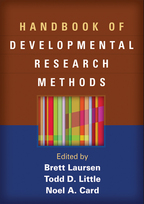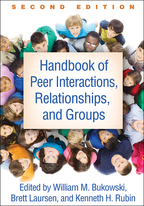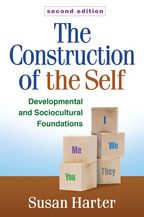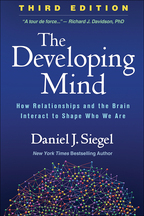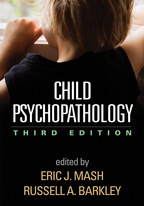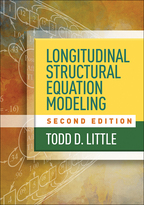Handbook of Developmental Research Methods
Edited by Brett Laursen, Todd D. Little, and Noel A. Card
HardcoverPaperbacke-bookprint + e-book
Hardcover
orderNovember 3, 2011
ISBN 9781606236093
Price: $111.00 788 Pages
Size: 7" x 10"
Paperback
orderOctober 15, 2013
ISBN 9781462513932
Price: $74.00788 Pages
Size: 7" x 10"
“This Handbook is an impressive collection of methods that span the familiar through cutting edge…useful to developmental researchers at all career and experience levels….Does a preeminent job at providing coverage of sufficient breadth and depth, making it an essential volume for both graduate students and seasoned investigators studying human development. From the perspective of someone new to developmental research, the value of the six chapters on foundational issues cannot be overstated. These chapters could easily form the starting point for a graduate seminar in developmental research methods. The scope of topics covered…ensures that The Handbook of Developmental Research Methods will be relevant for many years to come. Researchers working across the life span will find several examples with topics in the study of childhood, adolescence, and adulthood. Researchers working with both normative and clinical populations will also find examples throughout the Handbook….The Handbook will also be valuable for methodologists.”

—International Journal of Social Research Methodology
“The study of developmental change is a cardinal activity of behavioral and social science, but determining how to do it has prompted denial, disagreement, and despair for nearly a century. The contributors to this excellent volume are an outstanding group whose qualifications for guiding the field at this point in our history are truly stellar. Graduate students and faculty members alike will find this well-organized, highly informative volume indispensable as they articulate questions, design research, and analyze data pertaining to the study of change.”

—John R. Nesselroade, PhD, Hugh Scott Hamilton Professor of Psychology, University of Virginia
“In 41 chapters, this volume covers a very wide range of research methods, all extremely relevant to the developmental researcher. I know of no other handbook that even comes close to being so generally useful to young developmental researchers seeking to improve their knowledge of research methods. Numerous advanced topics are also treated—in many cases in depth—making the book valuable for methodologists as well. A highly commendable feature is the discussion of each method's applicability and assumptions.”

—Lars R. Bergman, PhD, Department of Psychology, Stockholm University, Sweden
“This is perhaps the most comprehensive and accessible handbook on developmental methodology yet written. Impressively, the handbook both covers current thinking on longstanding, classic issues and presents cutting-edge developments in emergent areas of developmental research, analysis, and design. Unlike many edited volumes whose chapters vary widely in style, format, and technical detail, the book is unified in its approach and eminently readable. It would serve nicely as the core text for a graduate seminar on developmental research methods.”

—Daniel J. Bauer, PhD, Department of Psychology, University of North Carolina at Chapel Hill
“The Handbook has an all-star roster of contributors who know both developmental and methodological issues. Especially impressive is that the volume covers a wide range of cutting-edge methodological issues at a level that is understandable to the practicing developmentalist. It is sure to be a valuable resource for decades to come for those who study change.”

—David A. Kenny, PhD, Department of Psychological Sciences, University of Connecticut
“The editors have compiled a volume that could easily become a standard reference that defines a generation of developmental researchers. This is an ideal reference for researchers at any career stage seeking an accessible yet informative introduction to state-of-the-art methods. The illustrative applications to substantive problems in human development will be useful to methodologists interested in further developing these methods. The chapters interweave research design with data analysis, reflecting the complex interdependence of the two in developmental research.”

—Keith A. Markus, PhD, Department of Psychology, John Jay College of Criminal Justice, City University of New York
“Comprehensive and consolidated, this volume is a 'one-stop shop' for methodological advances that need to be in every developmental scientist's tool box.”

—Antonio A. Morgan-Lopez, PhD, Department of Psychology, University of North Carolina at Chapel Hill
—International Journal of Social Research Methodology
“The study of developmental change is a cardinal activity of behavioral and social science, but determining how to do it has prompted denial, disagreement, and despair for nearly a century. The contributors to this excellent volume are an outstanding group whose qualifications for guiding the field at this point in our history are truly stellar. Graduate students and faculty members alike will find this well-organized, highly informative volume indispensable as they articulate questions, design research, and analyze data pertaining to the study of change.”
—John R. Nesselroade, PhD, Hugh Scott Hamilton Professor of Psychology, University of Virginia
“In 41 chapters, this volume covers a very wide range of research methods, all extremely relevant to the developmental researcher. I know of no other handbook that even comes close to being so generally useful to young developmental researchers seeking to improve their knowledge of research methods. Numerous advanced topics are also treated—in many cases in depth—making the book valuable for methodologists as well. A highly commendable feature is the discussion of each method's applicability and assumptions.”
—Lars R. Bergman, PhD, Department of Psychology, Stockholm University, Sweden
“This is perhaps the most comprehensive and accessible handbook on developmental methodology yet written. Impressively, the handbook both covers current thinking on longstanding, classic issues and presents cutting-edge developments in emergent areas of developmental research, analysis, and design. Unlike many edited volumes whose chapters vary widely in style, format, and technical detail, the book is unified in its approach and eminently readable. It would serve nicely as the core text for a graduate seminar on developmental research methods.”
—Daniel J. Bauer, PhD, Department of Psychology, University of North Carolina at Chapel Hill
“The Handbook has an all-star roster of contributors who know both developmental and methodological issues. Especially impressive is that the volume covers a wide range of cutting-edge methodological issues at a level that is understandable to the practicing developmentalist. It is sure to be a valuable resource for decades to come for those who study change.”
—David A. Kenny, PhD, Department of Psychological Sciences, University of Connecticut
“The editors have compiled a volume that could easily become a standard reference that defines a generation of developmental researchers. This is an ideal reference for researchers at any career stage seeking an accessible yet informative introduction to state-of-the-art methods. The illustrative applications to substantive problems in human development will be useful to methodologists interested in further developing these methods. The chapters interweave research design with data analysis, reflecting the complex interdependence of the two in developmental research.”
—Keith A. Markus, PhD, Department of Psychology, John Jay College of Criminal Justice, City University of New York
“Comprehensive and consolidated, this volume is a 'one-stop shop' for methodological advances that need to be in every developmental scientist's tool box.”
—Antonio A. Morgan-Lopez, PhD, Department of Psychology, University of North Carolina at Chapel Hill

